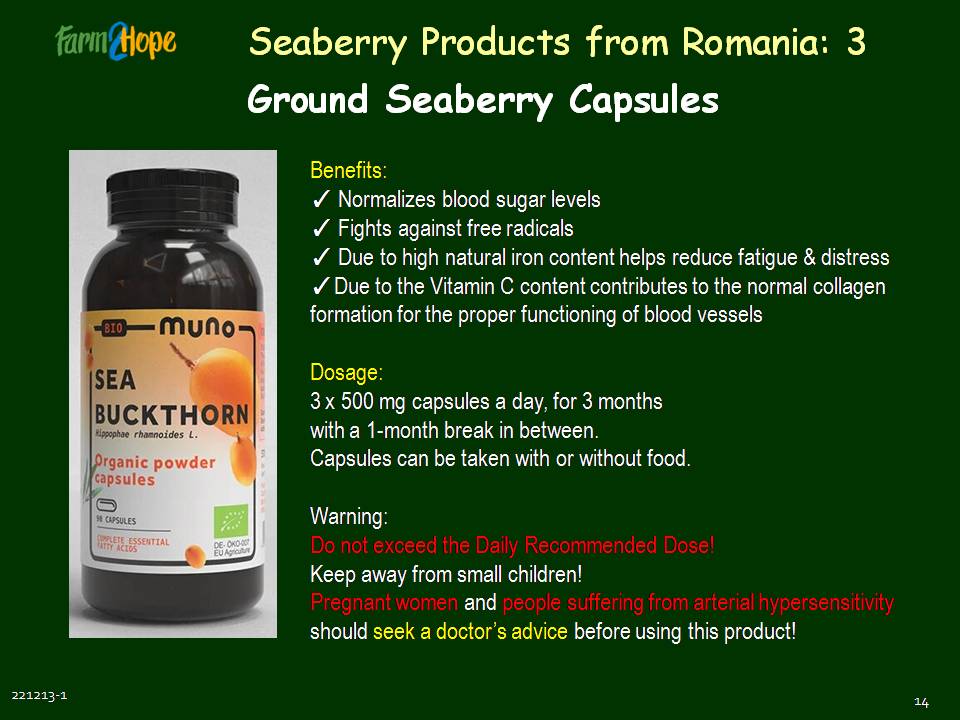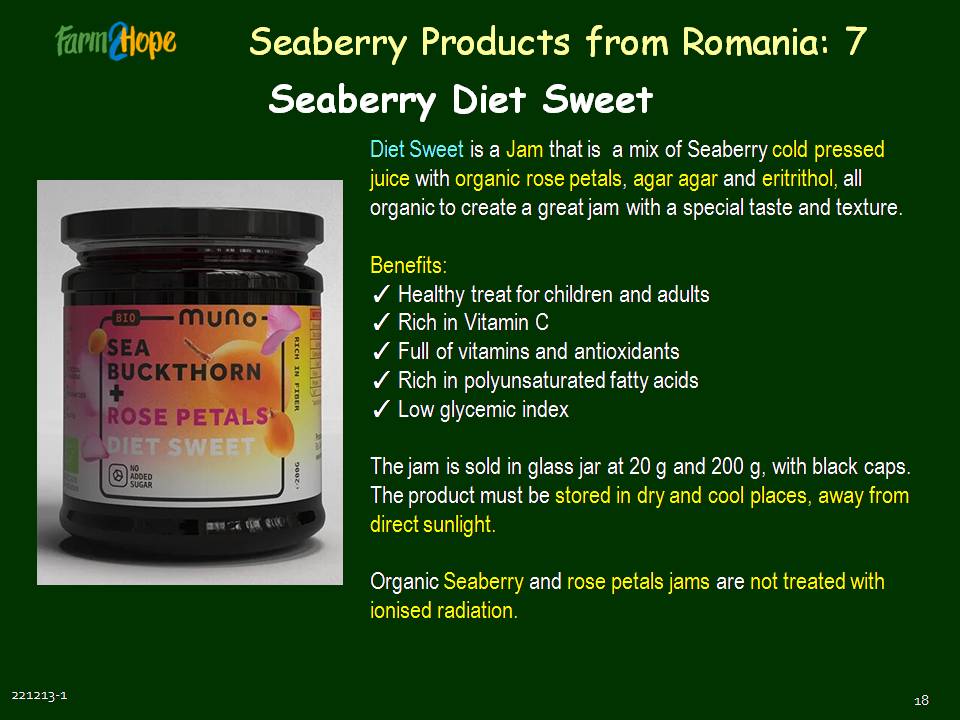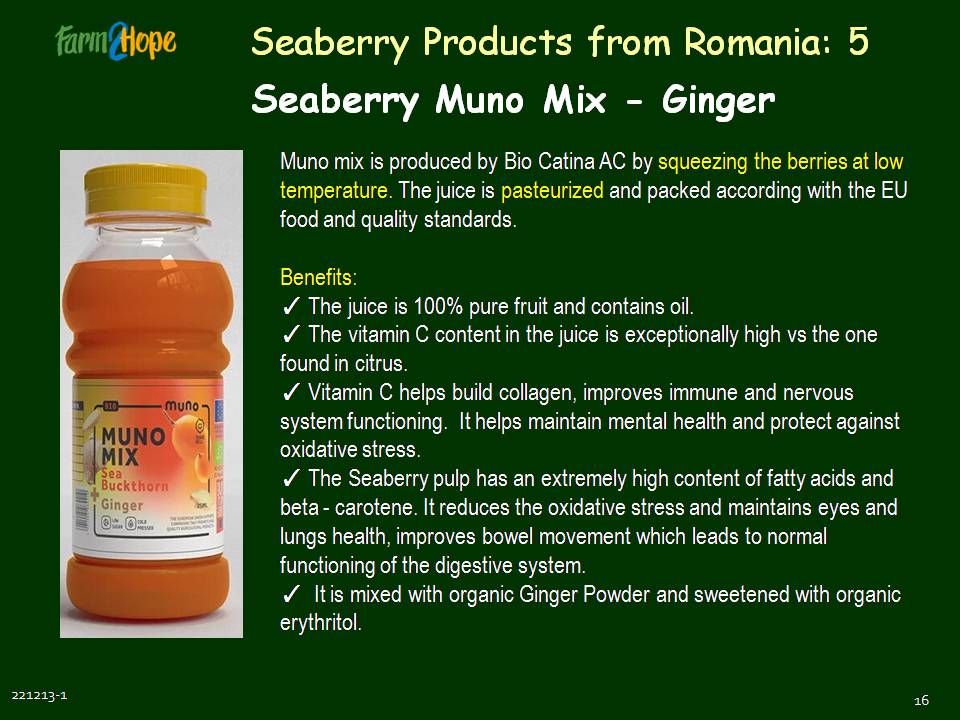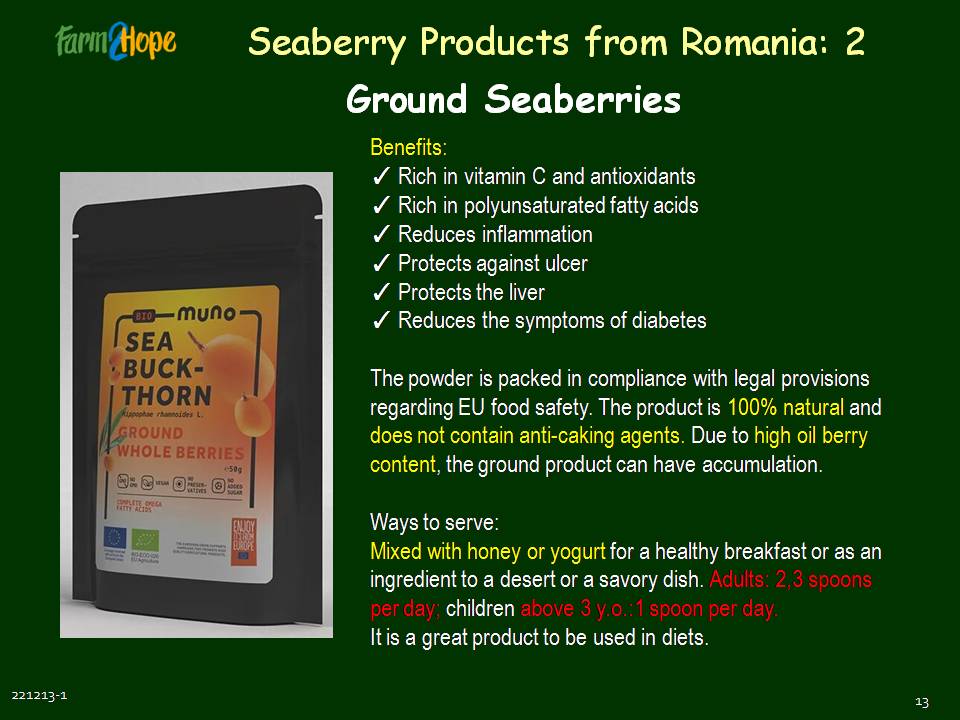Pepper Mint
Peppermint has darker green leaves that contain much more menthol than Spearmint. Peppermint has an icy cool taste which is good for herbal teas. Spearmint has light green leaves and contains very little menthol. The sweet minty flavour is ideal for cooking.
Health Benefits of Peppermint & Cautions
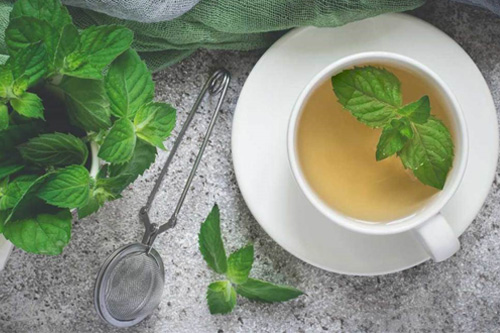
THIS CONTENT BELOW IS TAKEN FROM THE WEBMD SITE AT FOLLOWING URL.
http://healthline.com/nutrition/peppermint-tea#TOC_TITLE_HDR_14
Farm2Hope gives full credits to the writer at healthline.com
12 Science-Backed Benefits of Peppermint Tea and Extracts
Peppermint (Mentha × piperita) is an aromatic herb in the mint family that is a cross between watermint and spearmint.
Native to Europe and Asia, it has been used for thousands of years for its pleasant, minty taste and health benefits.
Peppermint is used as a flavoring in breath mints, candies and other foods. Additionally, many people consume peppermint as a refreshing, caffeine-free tea.
Peppermint leaves contain several essential oils including menthol, menthone and limonene.
Menthol gives peppermint its cooling properties and recognizably minty scent.
While peppermint tea is often drunk for its flavour, it may also have several health benefits. The tea itself has rarely been studied scientifically, but peppermint extracts have.
Here are 12 science-backed benefits of peppermint tea and extracts.
May Ease Digestive Upsets
Peppermint may relieve digestive symptoms, such as gas, bloating and indigestion.
Animal studies indicate that peppermint relaxes your digestive system and may ease pain. It also prevents smooth muscles from contracting, which could relieve spasms in your gut.
A review of nine studies in 926 people with irritable bowel syndrome (IBS) treated with peppermint oil for at least two weeks concluded that peppermint provided significantly better symptom relief than a placebo.
In one study in 72 people with IBS, peppermint oil capsules reduced IBS symptoms by 40% after four weeks, compared to only 24.3% with a placebo.
Additionally, in a review of 14 clinical trials in nearly 2,000 children, peppermint reduced the frequency, length and severity of abdominal pain.
Furthermore, capsules containing peppermint oil reduced incidence and severity of nausea and vomiting in a study in 200 people undergoing chemotherapy for cancer.
While no studies have examined peppermint tea and digestion, it’s possible that the tea could have similar effects.
SUMMARY
Peppermint oil has been shown to relax muscles in your digestive system and improve various digestive symptoms. Therefore, peppermint tea may provide similar benefits.
May Help Relieve Tension Headaches and Migraines
As peppermint acts as a muscle relaxant and pain reliever, it may diminish certain types of headaches.
The menthol in peppermint oil increases blood flow and provides a cooling sensation, possibly easing pain.
In one randomized clinical study in 35 people with migraines, peppermint oil applied to the forehead and temples significantly reduced pain after two hours, compared to a placebo oil.
In another study in 41 people, peppermint oil applied to the forehead was found to be as effective for headaches as 1,000 mg of acetaminophen.
While the aroma of peppermint tea may help relax muscles and improve headache pain, there is no supporting scientific evidence to confirm this effect. However, applying peppermint oil to your temples may help.
SUMMARY
While no evidence exists that peppermint tea improves headache symptoms, research suggests that peppermint oil reduces tension headaches and migraines.
May Freshen Your Breath
There’s a reason why peppermint is a common flavoring for toothpastes, mouthwashes and chewing gums.
In addition to its pleasant smell, peppermint has antibacterial properties that help kill germs that cause dental plaque — which may improve your breath
In one study, people who had undergone spine surgery and had received a rinse made with peppermint, tea tree and lemon oils experienced improvement in bad breath symptoms, compared to those who did not receive the oils
In another study, schoolgirls given a peppermint mouth rinse experienced an improvement in breath after one week, compared to the control group
While there is no evidence from scientific studies that drinking peppermint tea has the same effect, the compounds in peppermint have been shown to improve breath.
SUMMARY
Peppermint oil has been shown to kill germs that lead to bad breath. Peppermint tea, which contains peppermint oil, may help improve breath as well.
May Relieve Clogged Sinuses
Peppermint has antibacterial, antiviral and anti-inflammatory properties. Because of this, peppermint tea may fight clogged sinuses due to infections, the common cold and allergies
Additionally, research demonstrates that menthol — one of the active compounds in peppermint — improves the perception of airflow in your nasal cavity. Therefore, steam from peppermint tea may help you feel as though your breathing is easier.
Furthermore, warm liquids, such as chicken broth and tea, have been shown to temporarily improve symptoms of sinus congestion, likely due to their vapours
Though peppermint tea has not been studied for its effects on nasal congestion, evidence suggests that it may be helpful.
SUMMARY
While there is limited evidence that drinking peppermint tea may help unclog your sinuses, a warm beverage containing menthol — such as peppermint tea — may help you breathe a little easier.
May Improve Energy
Peppermint tea may improve energy levels and reduce daytime fatigue.
While there are no studies on peppermint tea specifically, research demonstrates that natural compounds in peppermint may have beneficial effects on energy.
In one study, 24 healthy young people experienced less fatigue during a cognitive test when given peppermint oil capsules
In another study, peppermint oil aromatherapy was found to reduce the incidence of daytime sleepiness.
SUMMARY
Peppermint oil has been shown to relieve fatigue and daytime sleepiness in some studies, but research specifically on peppermint tea is lacking.
May Help Relieve Menstrual Cramps
Because peppermint acts as a muscle relaxant, it may relieve menstrual cramps.
While peppermint tea has not been studied to that effect, compounds in peppermint have been shown to improve symptoms.
In one study in 127 women with painful periods, peppermint extract capsules were found to be as effective as a non-steroidal anti-inflammatory drug in reducing the intensity and duration of pain.
It is possible that peppermint tea could have similar effects.
SUMMARY
Drinking peppermint tea may reduce the intensity and length of menstrual cramps since peppermint helps prevent muscle contractions.
May Fight Bacterial Infections
While there are no studies on the antibacterial effects of peppermint tea, peppermint oil has been shown to effectively kill bacteria.
In one study, peppermint oil was found to kill and prevent the growth of common food-borne bacteria including E. coli, Listeria and Salmonella in pineapple and mango juices.
Peppermint oil also kills several types of bacteria that lead to illnesses in humans, including Staphylococcus and pneumonia-linked bacteria.
Additionally, studies indicate that peppermint reduces several types of bacteria commonly found in your mouth.
Furthermore, menthol has also demonstrated antibacterial activity.
SUMMARY
Studies confirm that peppermint effectively fights several types of bacteria, including those that cause food-borne illnesses and contagious illnesses.
May Improve Your Sleep
Peppermint tea is an ideal choice before bed, as it’s naturally caffeine-free.
What’s more, peppermint’s capacity as a muscle relaxant may help you relax before bedtime.
That said, there is not much scientific evidence that peppermint enhances sleep.
In one study, peppermint oil lengthened the sleeping time of mice given a sedative. However, another study found that menthol did not have a sedative effect.
Therefore, research on peppermint and sleep is mixed.
SUMMARY
Little scientific evidence suggests that peppermint tea is beneficial for sleep. However, it’s a caffeine-free beverage that may help you relax before bedtime.
May Aid Weight Loss
Peppermint tea is naturally calorie-free and has a pleasantly sweet flavor, which makes it a smart choice when you’re trying to lose weight.
However, there is not much research on the effects of peppermint tea on weight.
In a small study in 13 healthy people, taking a peppermint oil capsule resulted in reduced appetite compared to not taking peppermint.
On the other hand, an animal study showed that mice given peppermint extracts gained more weight than the control group.
More research is needed on peppermint and weight loss.
SUMMARY
Peppermint tea is a calorie-free beverage that may help satisfy your sweet tooth and reduce your appetite. However, more studies on peppermint and weight loss are needed.
May Improve Seasonal Allergies
Peppermint contains rosmarinic acid, a plant compound found in rosemary and plants in the mint family.
Rosmarinic acid is linked to reduced symptoms of allergic reactions, such as runny nose, itchy eyes and asthma.
In one randomized 21-day study in 29 people with seasonal allergies, those given an oral supplement containing rosmarinic acid had fewer symptoms of itchy nose, itchy eyes and other symptoms than those given a placebo.
While it’s unknown whether the amount of rosmarinic acid found in peppermint is enough to affect allergy symptoms, there is some evidence that peppermint may relieve allergies.
In a study in rats, peppermint extract reduced allergic symptoms, such as sneezing and itchy nose.
SUMMARY
Peppermint contains rosmarinic acid, which has been shown to reduce allergy symptoms, such as sneezing and runny nose. However, evidence on the efficacy of peppermint tea against allergy symptoms is limited.
May Improve Concentration
Drinking peppermint tea may help improve your ability to concentrate and focus.
While studies on the effects of peppermint tea on concentration are unavailable, two small studies have researched this beneficial effect of peppermint oil — taken by ingestion or inhalation.
In one study, 24 young, healthy people performed significantly better on cognitive tests when they were given peppermint oil capsules.
In another study, smelling peppermint oil was found to improve memory and alertness, compared to ylang-ylang, another popular essential oil.
SUMMARY
Peppermint oil, found in peppermint tea, may help increase alertness and memory, which may improve concentration.
Easy to Add to Your Diet
Peppermint tea is delicious and easy to add to your diet. You can buy it in tea bags, as loose-leaf tea or simply grow your own peppermint.
To make your own peppermint tea:
- Bring 2 cups of water to a boil.
- Turn off the heat and add a handful of torn peppermint leaves to the water.
- Cover and steep for 5 minutes.
- Strain the tea and drink.
Because peppermint tea is naturally free of caffeine, you can drink it at any time of day
Enjoy it as a post-meal treat to aid digestion, in the afternoon to boost your energy or before bed to help you relax.
SUMMARY
Peppermint tea is a tasty, calorie- and caffeine-free tea that can be enjoyed at any time of day.
The Bottom Line
Peppermint tea and the natural compounds found in peppermint leaves may benefit your health in several ways.
While research on peppermint tea is limited, several studies outline the benefits of peppermint oil and peppermint extracts.
Peppermint may help improve digestion, freshen your breath and improve concentration.
Additionally, this mint has antibacterial properties and may improve allergy symptoms, headaches and clogged airways.
Peppermint tea is a delicious, naturally sweet, caffeine-free beverage that can safely be consumed at any time of day.
Peppermint Hot Chocolate

Following recipees are taken from: https://cookpad.com/uk/
Farm2Hope gives full credit to the authors
Peppermint Recipes
Gluten and Dairy Free
Following recipees are taken from: https://cookpad.com/uk/
Farm2Hope gives full credit to the authors
Ingredients:
1 person
2 tbsps hot chocolate syrup *
1/2 tsp peppermint extract
250 ml dairy free milk
Peppermint Candy Chocolate Fudge
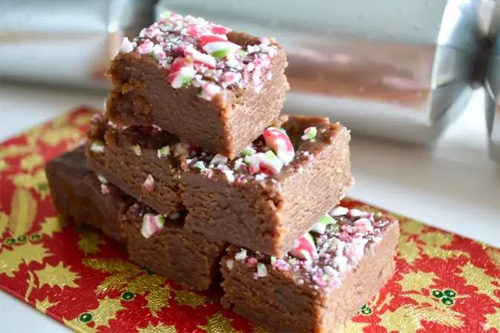
Ingredients:
135 g peanut butter
115 g dairy free spread
2 heaped teaspoons cocoa powder
2 teaspoons peppermint extract
210 g icing sugar
1 peppermint candy, crushed
Mango Peppermint Infused Water

This one is refreshing! This should last for up to a week.
After that, replace the mango slices and peppermint.
Ingredients:
1 mango, peeled and chopped
1 bunch peppermint, washed and patted dry
Water (about 1 liter)
Peppermint Coconut Ice
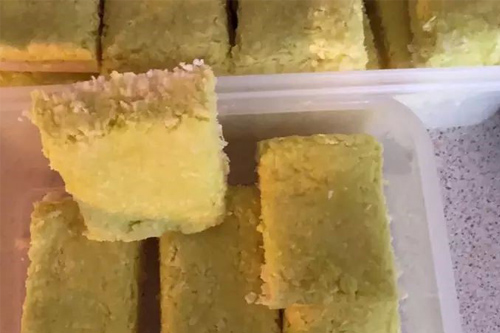
Ingredients:
500 Grams Icing Sugar
400 Grams Desiccated Coconut
1 large tin (397g) Condensed Milk
Green Colouring
Peppermint Flavouring
Mint Ice-cream

This one is refreshing! This should last for up to a week.
After that, replace the mango slices and peppermint.











